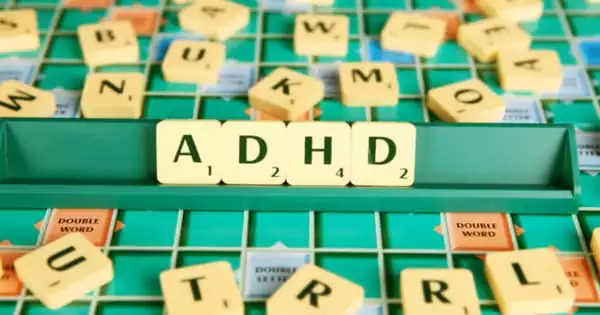According to a large new study, a shocking number of neurological, pulmonary, and musculoskeletal diseases appear to be linked to ADHD in adults. ADHD is a common neuropsychiatric disorder marked by inattention, impulsiveness, and hyperactivity that is commonly treated with stimulant therapy (methylphenidates or amphetamines).
ADHD in adults is still severely understudied, particularly in terms of how the psychiatric condition affects the rest of a patient’s overall health. However, that may change now that researchers have identified a number of associated conditions and risk factors linked to adult ADHD, according to a study published Tuesday in the prestigious medical journal The Lancet Psychiatry.
While scientists are unsure what causes ADHD, they believe it is caused by a combination of genes, environment, and subtle differences in how the brain is hard-wired. If you were diagnosed with ADHD or ADD as a child, chances are you carried some of the symptoms into adulthood. Even if you were never diagnosed as a child, ADHD can still affect you as an adult.
A shocking number of neurological, pulmonary, and musculoskeletal diseases appear to be linked to ADHD in adults. Identifying co-occurring physical diseases may have important implications for treating adults with ADHD and benefiting patients’ long-term health and quality of life.
Ebba Du Rietz
In the study, Swedish researchers examined the medical records of millions of people to identify diseases and conditions that appeared to coexist with ADHD, and then looked for shared underlying causes. With the results of this new study in hand, doctors may be able to better treat adults with ADHD while also keeping a closer eye out for any associated conditions.
Previous research suggests that adults with ADHD are at increased risk for a variety of physical health conditions, but only a small number of these associations have been thoroughly investigated. Furthermore, there are few detailed treatment guidelines for adults with ADHD and co-occurring physical diseases. Karolinska Institutet researchers have now investigated possible links between ADHD and a variety of physical diseases in adulthood, as well as whether genetic or environmental factors are involved.
“Identifying co-occurring physical diseases may have important implications for treating adults with ADHD and benefiting patients’ long-term health and quality of life,” Karolinksa Institutet medical epidemiologist Ebba Du Rietz said in a press release.

ADHD has been linked to liver disease, sleep disorders, obesity, epilepsy, and chronic obstructive pulmonary disease, according to the researchers (COPD). Adult ADHD appears to be associated with conditions such as Parkinson’s disease, dementia, cardiovascular disease, and others to a lesser extent.
This is not to say that ADHD causes these conditions or that anyone who has one of them is doomed to develop another. However, knowing about the potential correlations is important because clinicians can theoretically be more mindful of various risk factors while treating ADHD, especially since doctors frequently prescribe stimulants.
“These findings are significant because stimulant therapy necessitates careful monitoring in ADHD patients with co-occurring cardiac disease, hypertension, and liver failure,” said senior study author and rebro University epidemiologist Henrik Larsson in a press release.
The researchers were unable to identify all of the underlying causes of these conditions coexisting, but they did begin to uncover some links, the same genetic factors appear to contribute to both ADHD and various physical conditions, for example and they hope to learn more in the future studies.
With the exception of nervous system disorders and age-related diseases, the increased risk was largely explained by underlying genetic factors that contributed to both ADHD and physical disease. Full siblings of people with ADHD were at a significantly higher risk for the majority of physical conditions.
The good news is that, no matter how overwhelming it may feel, the difficulties associated with attention deficit disorder are surmountable. You can learn to manage the symptoms of adult ADHD with education, support, and a little creativity even turning some of your weaknesses into strengths. It is never too late to overcome the challenges of adult ADHD and begin succeeding on your own terms.
The researchers’ next goal is to investigate the underlying mechanisms and risk factors of ADHD, as well as the impact of ADHD on the management and prognosis of physical diseases in adults.














